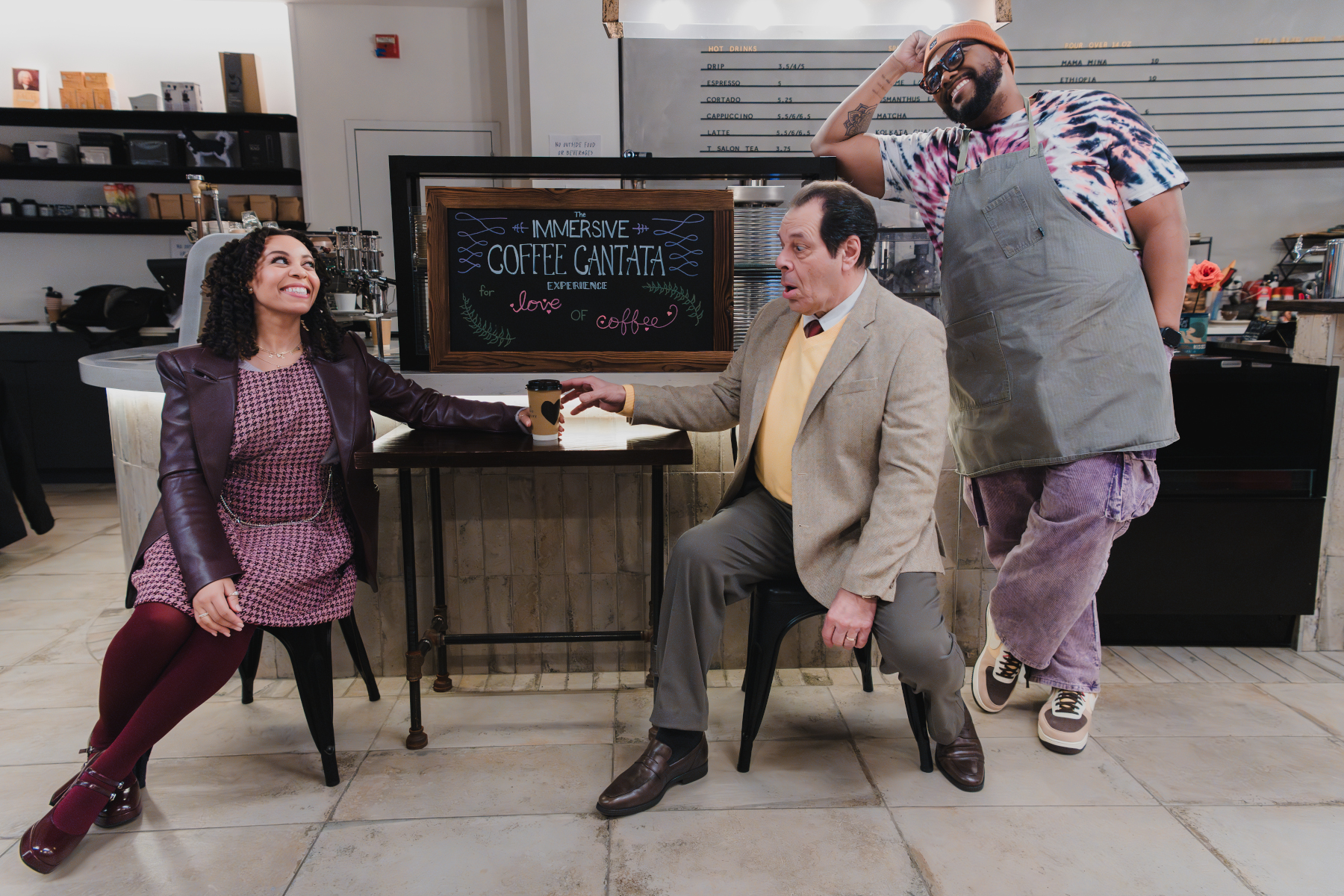Johann Sebastian Bach composed some of the most sublime religious music in the Western canon, yet in everyday life he was an earthy fellow. With his long-time collaborator Christian Henrici, librettist for the St. Matthew Passion, he also composed far less exalted fare. Among them is a lighthearted secular vocal work entitled “Schweigt stille, plaudert nicht,” (“Be quiet, don’t chatter”), more commonly known as the “Coffee Cantata.”
It premiered almost three centuries ago at Café Zimmerman, Leipzig’s classiest coffee house, where Bach regularly led Friday evening concerts. The cantata lampoons the widespread 18th-century prejudice against coffee, then a novel and fashionable substance, yet one that conservatives firmly believed to be inappropriate for women.
The slight plot describes a domineering father, Mr. Schlendrian (“Mr. Humdrum”), who seeks to compel his spunky daughter, Lieschen, to swear off the three-cup-a-day coffee habit she considers “lovelier than a thousand kisses.” When he threatens to deny her permission to marry, she at first seems to relent, only to triumph in the end by securing a marriage contract that allows her to drink coffee whenever she likes.
The cantata has long been treated as a miniature comic opera for three singers, suitable for costumed performance in historical spots such as a 500-year-old Dutch café or a Baroque German abbey.

On Site Opera, an innovative company that stages opera in intimate non-theatrical locations around New York (often with unusual repertoire), transports the action firmly into the 21st century by staging it at The Lost Draft, a hipster Soho coffee shop. In what is billed as an “Immersive Coffee Cantata Experience,” a minimalist coffee bar of grey concrete and blond wood becomes the stage, with the audience sitting just a few feet away, tasting free shots of specialty brew.
Beth Goldenberg’s costumes and Sarah Meyers’ stage direction sketch the characters vividly. Schlendrian becomes a conservative middle-aged dad clad in a tan tweed blazer he might have bought off the shelf in 1990. The Narrator is transformed into a stylish dude behind the bar. Lieschen sashays in, clad in a pink couture dress, fiddling with her cell phone.
Geoffrey McDonald renders the lyrics into awkward but generally witty English rhymes, as when closing marriage is described as uniting a “fashionista” with a “barista.” The three soloists ham it up with gusto and the night I attended, a rollicking good time was had by all.
Musically, however, this production fails utterly to convey the freshness and genius of Bach’s score.
This is not to criticize the singers, all of whom are accomplished professionals able to command big stages. Veteran Baritone Philip Cokorinos sings Schlendrian with admirably smooth legato, clear diction, and vocal warmth—occasionally shading the tone with a bit of Lieder-singer intimacy. Rising young tenor Bernard Holcomb narrated engagingly, if brassily, including a few smooth sotto voce asides. Though her diction forced spectators to consult their cell-phone supertitles, Christine Lyons conveyed Lieschen’s spirit and filled the room with grand and warm soprano sound. Four solid instrumentalists accompanied, playing a reduced score. For those (like me) who love the sound of big operatic voices in small spaces, I would welcome a chance to hear them all sing, say, Verdi.
Yet, faced with a work written 150 years earlier, their heavy and relatively monochromatic vocal style, with each overpowering both the instrumentalists and one another, along with an unidiomatic, unfocused, unvarying accompaniment, deadens the musical experience.
One does not need to be a diehard advocate of “historically-informed performance” to ask why, in a city where talented Baroque-style singers and instrumentalists abound, the company did not engage performers able to bring the score alive by rendering Bach’s snappy dance rhythms, exploiting all the timbral nuances of original instruments, articulating more subtly, achieving greater contrapuntal transparency, and embellishing vocal lines clearly meant to be ornamented.
On Site Opera, now under new leadership, is an essential part of New York’s operatic scene. Over the years, I have praised its productions, which—at their best—are viscerally immediate and dramatically compelling with no sacrifice of musical quality. In a city this large and diverse, the opportunities for future site-specific opera are limitless. Let’s hope the major musical misjudgments of this production are passing aberrations and not part of the creeping trend—so visible at other New York operatic venues—to privilege production values over musical virtues.
Andrew Moravcsik
The Immersive Coffee Cantata Experience
Music by Johann Sebastian Bach
New English Libretto and Orchestration by Geoffrey Mcdonald
Cast and production information:
Philip Cokorinos, Schelndrian; Bernard Holcomb, Narrator/Barista; Christine Lyons, Lieschen.
Geoffrey McDonald, Music Director/Orchestrator; Sarah Meyers, Stage Director; Beth Goldberg, Costumes; Cordelia Senie, Stage Manager.
The Lost Draft (New York)
All photos by Dan Wright Photography